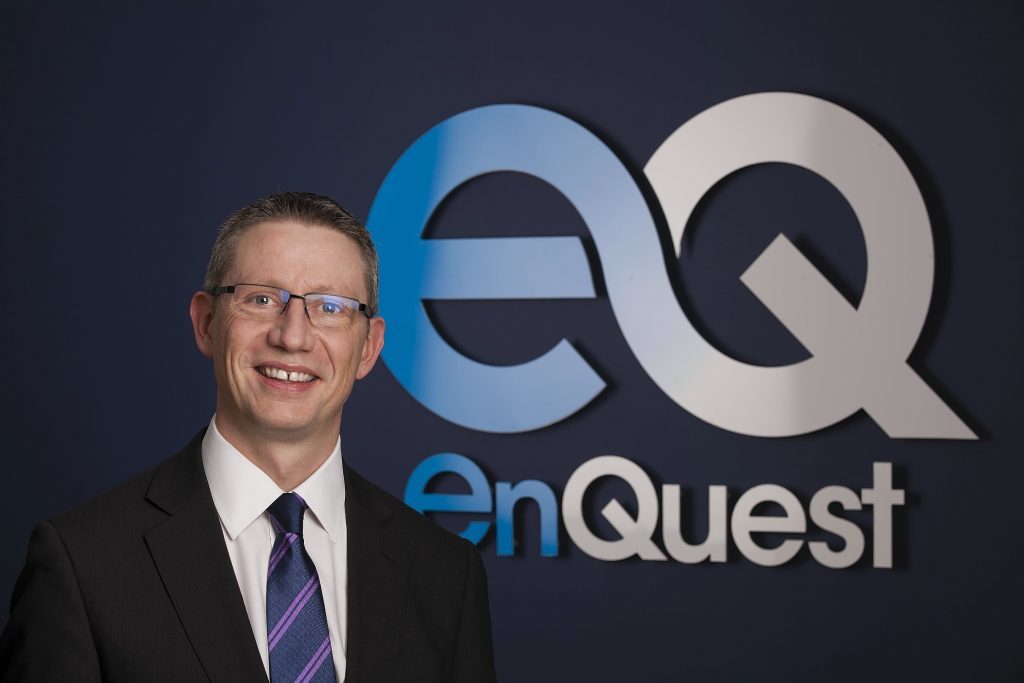
EnQuest is determined to keep its “growth story” going after overcoming a period of uncertainty to achieve first oil from the Kraken field.
The field is expected to pump out about 50,000 barrels of oil per day by the end of the year via the Kraken FPSO, one of the largest fuel handling vessels in the world.
Neil McCulloch, EnQuest chief operating officer, said delivering Kraken under budget was a significant achievement against the backdrop of a sustained downturn.
Operator EnQuest has managed to lower project costs to £2billion from £2.5billion in 2013, the year Kraken was sanctioned.
However, as many of the contracts equipment and services for Kraken were placed pre-sanction, EnQuest could not easily benefit from supply chain deflation once crude prices collapsed.
The clawed back capital came from the deployment of technology and tight project management, according to the company chief.
Mr McCulloch praised the Kraken team at EnQuest for staying focused on the task while management secured the firm’s future.
2016 threw up a number of hurdles for the firm’s management to navigate. In February last year, the firm was put under pressure when First Oil Expro (FOE) went into voluntary administration.
EnQuest and the remaining partner on Kraken, Cairn Energy, then had to split FOE’s 15% stake, leaving them with 70.5% and 29.5% respectively.
Last summer, EnQuest was forced to deny taking part in debt talks with the Oil and Gas Authority (OGA). A few months later in September, its talks with Israel’s Delek Group regarding a 20% farm-out of Kraken collapsed.
One month later EnQuest revealed debt restructuring proposals which would add £195million to the balance sheet and extend final repayment until 2021.
Creditors backed the plans in November.
Mr McCulloch said: “The team has ridden probably the most prolonged and deep downturn that the industry has seen.
“It’s shown that a project that is well set up can deliver despite changes in external circumstances.
“The team has really stuck to its knitting and has not been distracted by what has been going on externally.
“The world did change and the company needed to do the restructuring, which was successful.”
Richard Hall, EnQuest’s head of major projects, said having a lean team was a factor in making a success of Kraken.
Mr Hall said: “We have run this project with an incredibly small team by North Sea industry standards and we have kept the team together throughout.
“We do not carry any fat, and nor did we at the start. We have about 50 people in Aberdeen and less than 30 at any one time in Singapore looking after the FPSO. We always went into the project with that approach.
“Also, we went to one of our vendors and asked for the standard equipment and we’ve tailored our development to their equipment, rather than the other way round. That’s been another of the success stories.”
With the field up and running, Mr McCulloch said it was time for Kraken to start paying for itself and eat into EnQuest’s debt pile, which totalled £1.4billion at year-end 2016.
He said: “It has taken a significant amount of capital to get the development to first oil and now, as with any project, it has to pay back the investment.
“That’s normal. That’s what happens with major capital projects. They absorb capital and then they release cash flow.
“We will use that cash flow to reduce our debt and that will be good for the company and its shareholders.”
Kraken revenues could also bolster EnQuest in the mergers and acquisitions market, an area where it has already been active this year.
In January, EnQuest snapped up a 25% stake in BP’s North Sea Magnus field and a 3% interest in the Sullom Voe Terminal, which it will operate once the deal goes through.
Mr McCulloch added: “We will continue to think about opportunities while we pay down debt and improve our balance sheet.
“We’ll keep going. Our intention is to keep the growth story of EnQuest intact.”
Recommended for you

